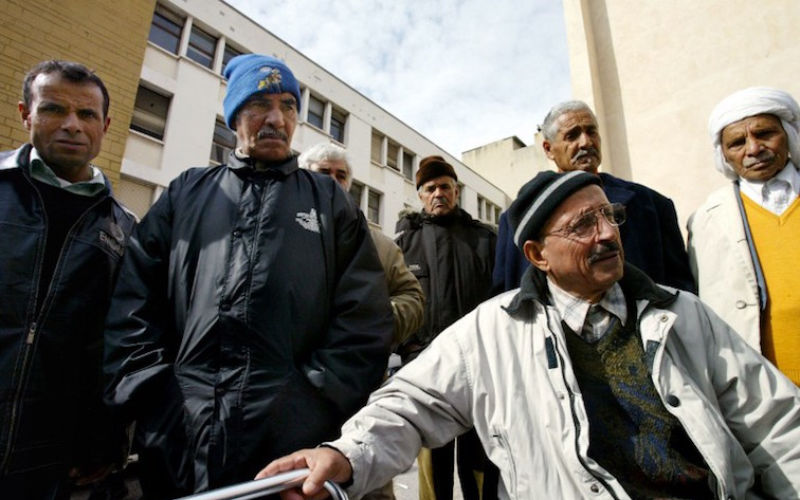Moroccans in Belgium: between successful integration and persistent discrimination

60 years after the signing by Rabat and Brussels of the convention "on the employment of Moroccan workers in Belgium", no emblematic place that could contribute to weaving social ties and enhancing the contributions of this immigrant population has been set up.
In an interview with La Libre, Hajar Oulad Ben Taib, a researcher in the history of immigration at the Université Saint-Louis, traces the genesis of the signing on February 17, 1964 by the Belgian and Moroccan governments of the convention "on the employment of Moroccan workers in Belgium". "Belgium’s policy of recruiting foreign labor in the coal mining sector dates back to the interwar period, and intensified after World War II with the signing of a series of bilateral agreements. In 1946, an agreement was signed with Italy but, 10 years later, after the Bois du Cazier disaster, the Italian government asked Belgium for better working conditions for its nationals. The Belgian government did not respond to these demands, and instead expanded its recruitment areas to the southern Mediterranean region by signing agreements with Spain and Greece." This is how Belgium turned to Morocco.
"Prospecting in Morocco was launched in the early 1960s, and the February 64 agreement was negotiated in a few days," the researcher recalls. Morocco, like the other countries, sees an advantage in it: sending workers helps to ease social tensions (since, like Italy, Greece and Spain, Morocco, which gained independence in 1956, still struggles to offer economic prospects within its borders), to train them and to hope for a return on investment; not only will these workers send money to their relatives who remained in the country, but they may also return with new professional training."
The first Moroccan workers then arrived in Belgium. They numbered 2,000. "The 1964 framework agreement is essentially symbolic in scope. Earlier Moroccan emigrations had preceded it. Moreover, it mentions in its first version a limited figure: that of 2,000 workers."
Concerned to make up for the labor shortage that continues to affect the country, "our government will encourage family immigration in this direction (to stabilize Moroccan workers sometimes tempted to join the Netherlands or France), will relax the conditions of arrival and expand the recruitment sectors towards metallurgy and construction. Migration flows will consequently be directed towards the big cities, whereas they were initially oriented towards the Walloon and Flemish coal mines," explains Hajar Oulad Ben Taib. These populations "first settle in precarious housing near the coal mines, then in the city, in the neighborhoods of the stations and in the poorer neighborhoods that already welcomed immigrant populations from Greece, Spain, Portugal or Italy. This is the case of the Brussels municipality of Molenbeek," she adds. The Moroccan migrants will nevertheless be rejected by a fringe of Belgian society when it realizes that they intend to settle permanently.
"As the Belgian population realizes that the Moroccans intend to settle permanently, we see the emergence in political and media circles of an assumed discourse of rejection. The mayor of Schaerbeek, Roger Nols, who will in particular set up separate counters for foreigners, particularly illustrates this xenophobic climate," the academic will explain, also noting that "an incentive policy for return, with bonuses, will also be organized, but will end in failure." Over the years, the Moroccans have managed to integrate. Some have even acquired Belgian nationality and have more or less integrated all the public, media, economic, political and academic spheres, but others remain confronted with a certain number of problems. "The situation appears to me to be contrasted. We are talking today about the third and fourth generations of Moroccan immigrant descent. This immigrant ancestry remains nevertheless difficult to assume, and the phenomena of school, housing or employment discrimination are still very widespread. The current economic crisis is also generating a regularly hostile discourse towards the Belgo-Moroccans which crystallizes for some around cultural or religious identity," Ben Taib depicts.
While the researcher thinks that "the Moroccan community is very well integrated, very open, with a representation in practically all socio-professional categories," she still points out that it "still suffers from certain stereotypes that are deeply rooted, from discriminations that explain dramatic episodes, such as the radicalization that some young people have experienced." She also deplores "the lack of real political will to set up an emblematic place that would be the showcase of this migratory history, and that would contribute to weaving social ties and enhancing the contributions of these immigrant populations."
Related Articles
-

Belgian Drug Lord ’Freaks’ Captured in Antwerp After Evading Authorities
27 April 2025
-

National Strike in Belgium Disrupts Flights, Impacts Morocco Routes from Charleroi Airport
27 April 2025
-

Brussels Drug Gangs Exploit Social Media to Recruit Moroccan Minors
26 April 2025
-

Belgian School Accused of Discriminatory Dress Code Enforcement in Anderlecht
25 April 2025
-

Brussels Police Officers Face Charges for Leaking Murder Suspect’s Photo to Local ’Sheriffs’
25 April 2025